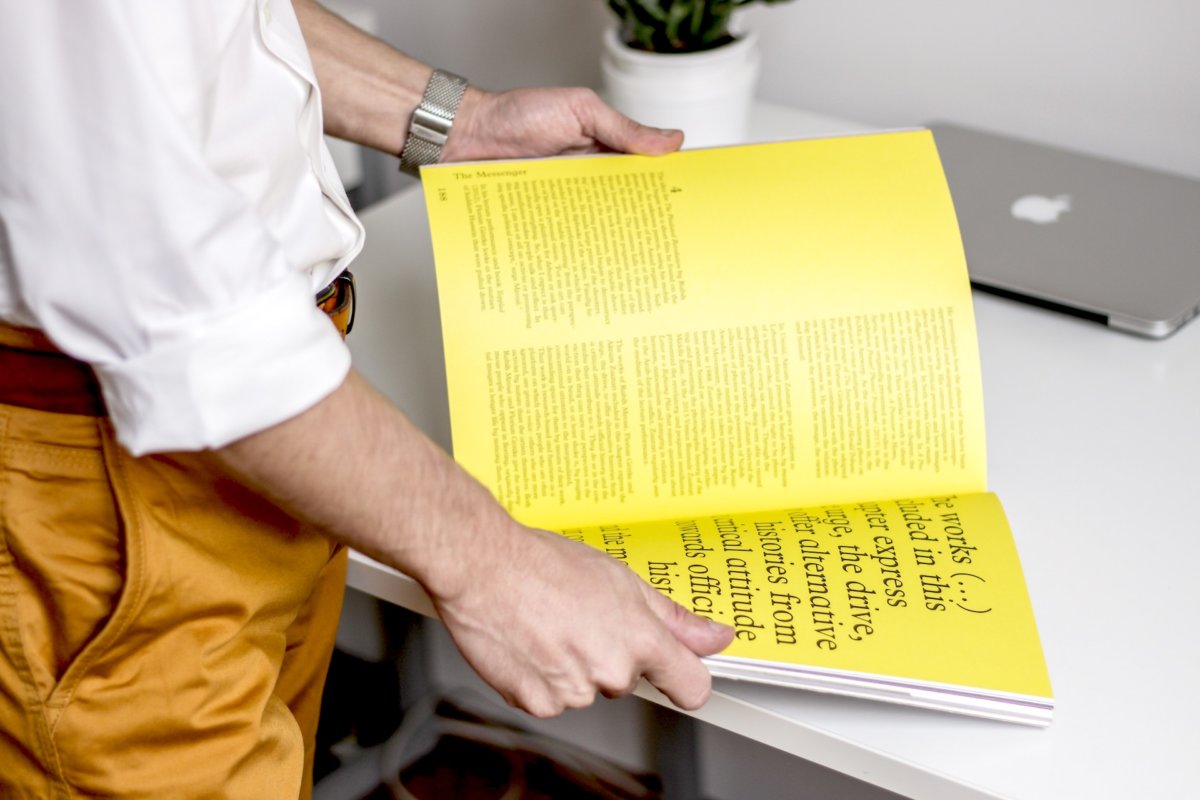In our global village, we are richer for experiencing what lies outside of our backyard. We are spoiled for choices and connection if we want it. With this much information, though, it is sometimes overwhelming and we may look for a shortcut. This is what jumping on the bandwagon is about. What if it’s jumping off the bandwagon that will enhance our health and help us find true fulfillment?
There are two somewhat similar sayings – “falling off the wagon” and “jumping on the bandwagon” – which have left people scratching their heads. If someone breaks their sobriety vow and starts drinking, are they on or off the wagon? And is the wagon the same as the bandwagon?

“Falling off the wagon” originates from “I’m on the water wagon” meaning the person is abstaining from alcohol. So “falling off the wagon” means they are drinking. These days we also use this saying for other behaviours including dieting.
“Jumping on the bandwagon” refers to joining in on something that is in trend, fashionable or looks likely to succeed. A bandwagon is also propaganda to get more people onboard simply because others are thinking or doing it. Peer pressure and mob mentality in its degrees come to mind.
What does being on or off a wagon have to do with health?
Living in the Information Age
We are not in lack of data points and information. I think we can agree that there is far too much information. Everywhere we turn, we see advertisements of some kind, especially on social media. Instead of the six o’clock news, we have it 24/7. A few clicks on the internet brings us into worlds and worlds of info.
Rarer now is finding a quiet spot. In the United States, One Inch Square located in the Hoh Rainforest of Olympic National Park in Washington State is purported to be the quietest. Here you can still listen to natural silence. In Running with Nature, Mariel Hemmingway and Bobby Williams shared for them the quietest (and darkness) place was a dolomite cave they visited in the Sierras. Got any tips to share?

The challenge with so much information is filtering. We want quality information that will help us make the best possible decisions, information that will broaden our minds and enhance our lives. This means we want well-balanced and useful information from dependable sources without hidden agendas and vested industry interests.
The thing is, our brain for survival purposes prefers familiarity. Anything out of pattern can be indicative of danger. Our pattern recognition and encodings, through brain development and evolution, have become quite sophisticated. Yet we can rather quickly bypass our thinking brain, right back to automatic reactions.
Neuroscientist and author of The Forgetting Brain Rodrigo Quian Quiroga explains that the brain “focuses on relatively sparse information and extracts meaning by processing it redundantly, many times and in many different ways….. We assume from past experiences the perceptual information not registered by our brain; they are the assumptions that we constantly make and that sometimes lead us to be fooled by optical illusions or false memories.”
So our brain tends to filter out data points that do not match up with our construct of reality, in order to minimize cognitive dissonance. Without conscious effort, we can become our own echo chambers.
Feeling Safe in Social Situations
Due to various recent health concerns, I joined a group to learn more about the pro- and anti-stance. The issue is highly polarizing, politicized, and emotionally-charged. While I learned a lot from a variety of experts and people’s actual experiences, it got extremely uncomfortable. My nervous system was not happy. I too could feel myself being triggered and I could feel all the anger, confusion, and a general mayhem of emotions, from people not feeling safe.
When we feel unsafe, our more ancient and highly defensive parts of our brain and nervous system come online. Out goes the social engagement state, our highest functioning in terms of evolutionary progress. In the social engagement state, we are open, curious, and present. We stay flexible and we are able to listen to reasoning and other points of view.
About that Bandwagon
When we jump on a bandwagon, we jump into mass identity and group-think. We start to feel safer, safe in numbers. We can find belonging and we can feel good about a common cause. The problem comes when we bolster against “Other” in this process, tuning out ideas not of our frequency.
Without grounded awareness and vigilance, it is easy to devolve into us vs them mentality. People cease to be individuals.
So one bandwagon is recycling. There’s been a real push for recycling more and recycling properly. When we have to literally sort out our discards, we see more clearly what we are using. Have you been stumped by which bin to put the multi-material packing? Recycling is important for the environment and for us to get clearer about our consumerism and overall choices.
The bandwagon effect comes from focusing on recycling, crafted as a citizen environmental movement. We the people have the power, and we do.
The problem is that recycling is insufficient by itself. Perhaps we focus on recycling because it is much easier than to reduce or even reuse. Beyond sorting properly, recycling is essentially a mindless activity. Reducing and reusing, on the other hand, require an actual shift in thinking.
Recycling makes it easy for us to feel better about ourselves. This is because most people don’t bother asking where our recycling goes. We assume someone else has done the homework and vetted the process.
As we indiscriminately jump bandwagon to bandwagon, recycling, buying almond milk, burning palo santo, or arguing against organic, we are leaving a trail of destruction somewhere. Somewhere else.
Can we really be well when we continue a cartesian model? When we turn a blind eye on destruction in some faraway place while we enjoy cleaner air ourselves? Or for that matter, while we sit in the comfort of our locally-made armchair handcrafted from reclaimed solid wood and hemp fabric?

Why do we jump on the bandwagon?
I think it’s complex why any of us does anything. A major part though is we’re still looking for a magic pill. That instant fix. The tried-and-tested. Part of this is because we feel we are not the experts. Many of us were groomed to look outside of ourselves for answers, validation, and authority.
So we jump on the bandwagon. Because the sell is alluring and the narrative seductive. And we are tired. We want answers and we just want to feel good, or better. So we put butter in our coffee, we intermittently fast, we down celery juice first thing, we try to meditate, we sing kirtan … none of this is “bad” and is actually quite enjoyable. Well, if I add cucumber and lemon to my celery juice anyway.
The question is – is it right for me? It is right for me right now?
Why we fall off the wagon
We all have addictions. Maybe it’s not to alcohol, opioids, or sex. Our addictions may be to keeping busy, having co-dependent and other unhealthy relationships, being angry, acting a certain way, seeking out drama … We want to numb physical pain, emotional suffering, mental anguish, or the sense of separation that comes from believing we are only a physical being.
In Do We Always Fall Off the Wagon, professor of philosophy Peg O’Connor digs deeper into popular cultural depictions of how relapses work, the “Kraken script”. You may have heard of this mythological sea creature that is undetectable from its surroundings and when it strikes, it does so suddenly and utterly.
Pop culture depictions of relapse follow the Kraken script. Our addictions may be dormant—we may even have the appearance of stability and solidity like that placid island. But something is going to come along in our daily life—losing a loved one, being jilted by a partner, getting fired from work, or being told by a parent that we do really have an evil twin—and the Kraken strikes.
Peg O’Connor
Peg O’Connor sees a relapse not as coming from nowhere, without warning. She offers it is rather from “a sequence of choices, decisions, and actions made by a person over time.” She also shares that according to the American Society of Addiction Medicine, relapses involve :
- feeling increasingly isolated or defensive
- struggling with depression (“melancholy and low self-esteem”)
- losing control and feeling stuck; immobilized and helpless
- having multiple triggers that can cause confusion and overreaction
- thinking that the behaviour is not so bad or it’s been a long time (“one little drink won’t hurt”)
- creating, building or seeing circumstances or people to justify feelings and actions
- feeling that there is no other choice
I posit that we have relapses and resolution “failures” because we have jumped onto some bandwagon or other. Even feeling we “should” make New Year resolutions or buying into the idea that we are broken. Again, I am not saying that these are necessarily “wrong” though they can be ineffective or misaligned with what we truly desire as a human and as a soul. The key is to identify the “biggest” bandwagon we’ve jumped onto. The most fundamental beliefs that serve as the foundation of our actions.
The goal of the individuation process is the synthesis of the Self.
Carl Jung
Jumping on a bandwagon is joining what Caroline Myss calls an “attitude tribe”. Bonded by a common belief, we may not even know these people from around the world. It is an energetic connection and our energy moves through these corridors and portals. What this means is that we have energies not in present time. Not being fully grounded depletes us and diverts our attention to what feels urgent and unimportant.

So what to do?
It would be hypocritical for me now to tell you what to do. I would be creating or bolstering some bandwagon. What I suggest, for you as for myself, is to trust ourselves – that voice and inner wisdom. This is a process and a practice. Because we all have filters, what we perceive to receive is not perfect. It is therefore important to both honour yourself while not discounting other people. Use any reactions and triggers to identify these filters, thereby becoming an empty vessel to receive your own wisdom. To reclaim our sovereignty and our soul power, here are several ideas to experiment with.
1 We all have our own journey
Each of us has our own path to walk. Parts of my journey may resemble parts of yours. While it is fun and reassuring to walk alongside each other, we cannot mistake other people’s signposts for our own. Helping and empowering each other is natural. Presuming we know better is arrogant. Assuming others cannot rise to the challenge is disrespectful. Trust that we are all doing our best.
2 We are the descendants of the most resilient folks
Many of my friends are looking into their family tree and the stories that get unburied are simply amazing. We have all come from sturdy stock, the descendants of survivors. What this means is that every lineage has its share of suffering, trauma, grief, secrets, as well as triumphs, joy, and resilience. All of us come from perpetrators and victims. For me, this means forgiveness is paramount on the human level. We all also have ancestral wounds to heal and gifts to tap into.
3 There is no bypassing
As much as I would like to eliminate other people’s pain and suffering, I cannot. If I am completely honest, there had been times when I did wish someone could remove the rock or the hard place for me. Alas there is no bypassing our lessons. We can choose how we learn them, even if vicariously I believe. So there is no magic pill. There is no shortcut. Sometimes I forget. When I am present, I know that life is a powerful and prayerful experience. Tapped in, I move with the pulse of the universe, flowing and ebbing, dynamic and yielding, active and resting.
Remembering these three points can help us lean into who we are, rather than first lean into other people. Being grounded in an unshakeable trust in ourselves, we will find the need to jump onto a bandwagon dissolve. Including the ban wagon.
Knowing ourselves on the human and multidimensional levels helps us engage with life more honestly and fully. This self-knowing and self-acceptance is presence in our own life.
We may still fall off the wagon from time to time. Then we brush ourselves off, maybe laugh at our silliness of a forgetful moment, and get back on our path. Embracing it all with gratitude, equanimity, and peace.

